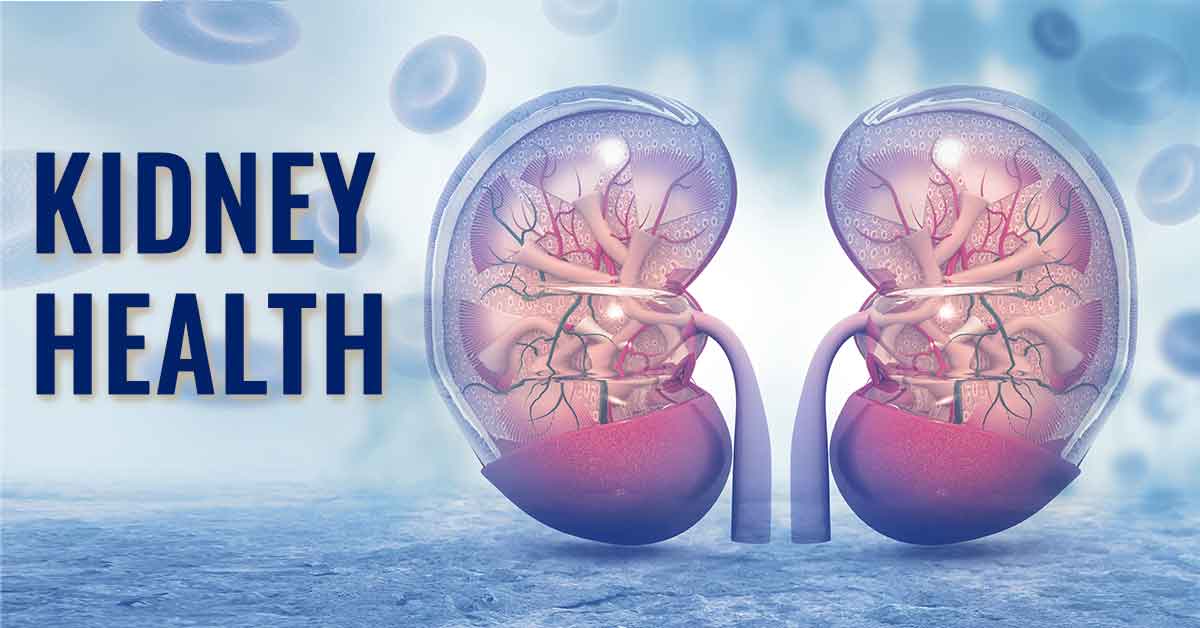Your kidneys play a vital role in filtering waste, balancing fluids, and regulating key functions in the body, including blood pressure, red blood cell production, and electrolyte levels. But like many organs, we tend not to think about our kidneys until there’s a problem.
The good news? You can take simple, proactive steps every day to keep your kidneys functioning at their best. Whether you’re managing chronic kidney disease (CKD), at risk for developing it, or simply aiming for better overall wellness, these habits can make a real difference.
1. Stay Hydrated, But Don’t Overdo It
Water helps your kidneys remove toxins and waste from the blood. Staying properly hydrated also prevents kidney stones and urinary tract infections (UTIs), which can impact kidney function.
Tip: Most people need 6–8 cups of water a day, but this varies based on activity level, climate, and medical conditions. Overhydration can also stress the kidneys, so speak with your doctor about what’s right for you. Especially if you’re on dialysis or have reduced kidney function.
2. Eat a Balanced, Kidney-Friendly Diet
A diet rich in fruits, vegetables, whole grains, and lean proteins can lower your risk for kidney disease and other chronic conditions like diabetes and hypertension.
Focus on:
- Fresh, unprocessed foods
- Low-sodium options
- Reducing added sugars and saturated fats
If you already have kidney disease, your doctor may recommend limiting certain nutrients like potassium, phosphorus, or protein. A registered dietitian can help you plan meals tailored to your needs.
3. Monitor Blood Pressure Regularly
High blood pressure is one of the leading causes of kidney damage. It damages the blood vessels in your kidneys over time, reducing their ability to function properly.
Make it a habit to:
- Check your blood pressure at home or during doctor visits
- Take medications as prescribed
- Cut down on salt and processed foods
- Manage stress through breathing exercises, walking, or meditation
4. Maintain Healthy Blood Sugar Levels
Diabetes is another major cause of kidney disease. Over time, high blood sugar can damage the tiny blood vessels that filter your blood.
Daily habits to help:
- Follow your prescribed diabetes care plan
- Monitor glucose levels
- Limit refined carbs and sugary drinks
- Stay active to improve insulin sensitivity
Even if you’re not diabetic, keeping your blood sugar stable through healthy eating benefits kidney function.
5. Be Cautious with Over-the-Counter Medications
Nonsteroidal anti-inflammatory drugs (NSAIDs) like ibuprofen and naproxen can reduce blood flow to the kidneys, especially when taken in high doses or over long periods.
What you can do:
- Only take pain relievers when necessary
- Avoid long-term daily use without medical guidance
- Choose alternative pain relief methods when possible (ice packs, physical therapy, etc.)
- Ask your provider about kidney-safe medication options
6. Quit Smoking
Smoking slows blood flow to the kidneys and accelerates kidney disease in those who already have it. It also increases the risk of high blood pressure and certain cancers, including kidney cancer.
Quitting benefits your whole body, but your kidneys in particular will thank you. Talk to your doctor about cessation programs or medications that can help you stop for good.
7. Exercise Regularly
Exercise helps control weight, blood pressure, and blood sugar, three key factors in kidney health. It also improves circulation and energy levels, which benefit your entire body.
Aim for:
- At least 30 minutes of moderate exercise (like brisk walking) 5 days a week
- Activities you enjoy, such as swimming, biking, or yoga
- Staying active throughout the day. Even light movement counts
If you have CKD or other medical conditions, consult your care team before beginning a new exercise routine.
8. Get Enough Sleep
Sleep plays a surprisingly important role in kidney health. During sleep, your body regulates hormones that affect kidney function, blood pressure, and inflammation. Aim for 7–9 hours of quality sleep each night. Avoid screen time before bed, create a restful sleep environment, and try to keep a consistent bedtime and wake-up time. Even on the weekends.
9. Limit Alcohol Intake
Excessive drinking can impair kidney function by increasing your blood pressure and dehydrating your body. It also puts strain on the liver and can contribute to other health issues that impact the kidneys.
Healthy guidelines:
- Limit alcohol to 1 drink per day for women and 2 for men
- Stay hydrated if you do drink
- Avoid binge drinking, which can be especially damaging
10. Get Regular Kidney Function Screenings
Many people don’t realize they have kidney disease until it’s in an advanced stage. Routine screenings, especially if you’re in a high-risk group, can catch problems early, when they’re most treatable.
Screenings may include:
- Blood tests (like creatinine or GFR)
- Urine tests (checking for protein or blood)
- Blood pressure monitoring
People with diabetes, hypertension, or a family history of kidney disease should speak with their provider about annual kidney checkups.
Take Small Steps Today for Healthier Kidneys Tomorrow
Supporting kidney health doesn’t require an extreme lifestyle overhaul. It’s about consistent, manageable habits. Including hydration, nutrition, exercise, and regular check-ins with your healthcare team.
At Mobil Dialysis, we understand how vital kidney health is to your quality of life. That’s why we’re dedicated to providing mobile, flexible, and compassionate dialysis care to patients wherever they are. Whether you’re managing chronic kidney disease or supporting a loved one, our team is here to help every step of the way.





